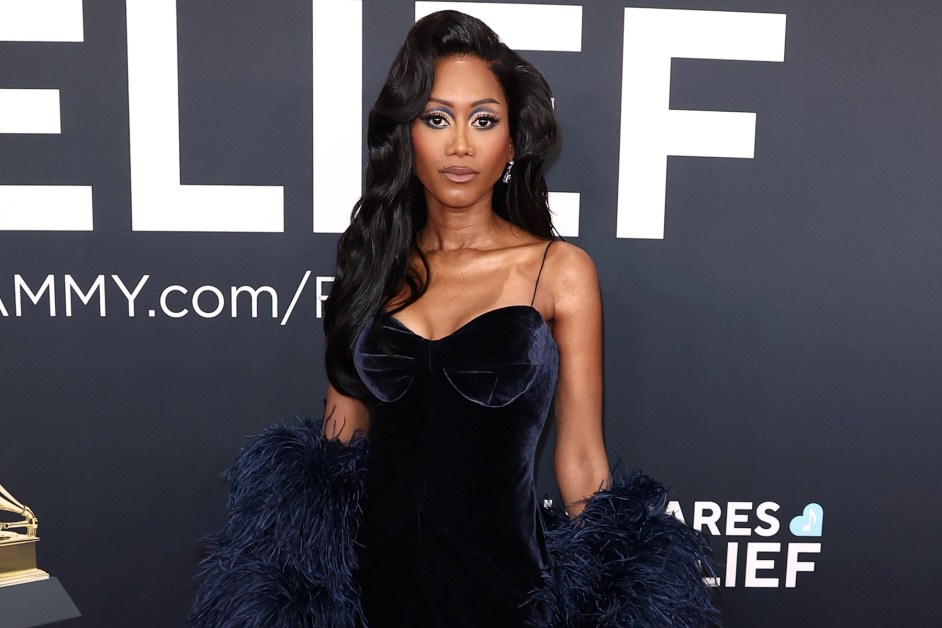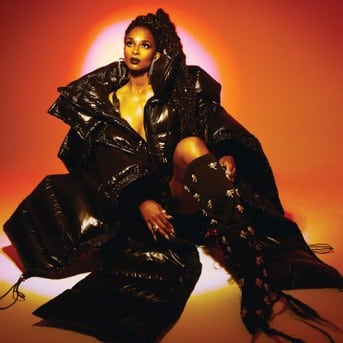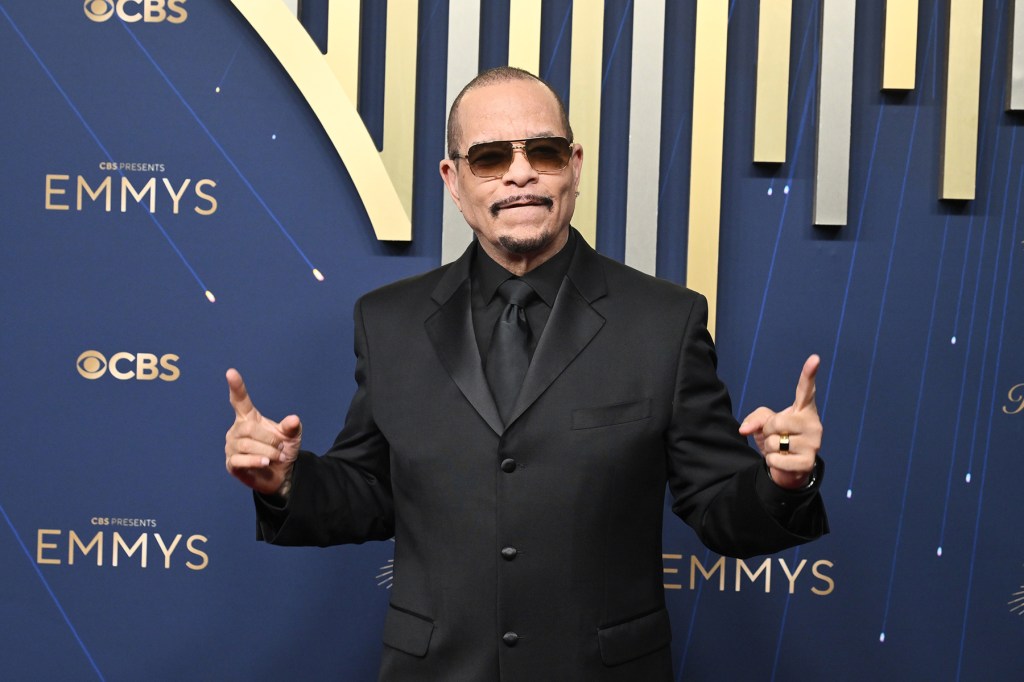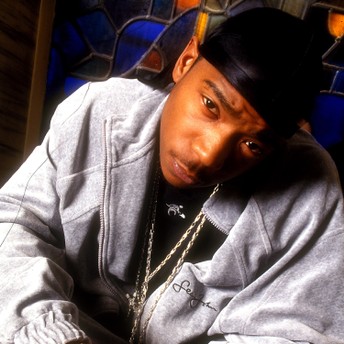R&B/Hip-Hop
Page: 4
Trending on Billboard
A$AP Rocky’s Don’t Be Dumb album has suffered through plenty of delays, but fans once again have hope for a 2026 release date after noticing a possible message through Rocky’s wardrobe during the Harlem native’s Camp Flog Gnaw performance Sunday (Nov. 23).
The Mob frontman kicked off his set at Tyler, the Creator’s festival hanging from the side of a helicopter while using a megaphone as a mic. Once Rocky removed a flannel jacket, he donned a hoodie with a set of numbers emblazoned across the right sleeve.
“01162026” the sleeve reads in black, which many took as a hint at a Jan. 16, 2026, release date for the album.
The theory gained some legitimacy since it’s a Friday, but other fans had a more pessimistic outlook, bringing up that Jan. 16 is actually National Nothing Day, and Rocky’s possibly messing around.
“You really can’t make this up,” one person wrote on X.
Another added: “it’s not happening he just trolled all of us!”
But one fan had a bit more confidence in Rocky delivering. “if nothing happens that day (no competition) wouldn’t it be the perfect day to drop an album,” they wrote.
There have been numerous missed possible release dates and delays for Don’t Be Dumb over the years, so it remains unclear if fans should mark their calendars for Jan. 16.
However, during a conversation as part of Variety‘s Hollywood Issue, Rocky told LaKeith Stanfield, Callum Turner and Glen Powell that his album is still slated to drop in 2025.
“Danny Elfman, he just did my album with me that I’m putting out this year,” Rocky said. “He scored a bunch of the songs on my album.”
A$AP Rocky’s last album arrived in 2018 with TESTING and it’s been a long road to Don’t Be Dumb.
Did you know that Muni Long wrote these bangers?
11/24/2025
Trending on Billboard Travis Scott wrapped up his Circus Maximus Tour on Nov. 19 and has broken the record for the highest grossing solo rap tour of all time, according to Live Nation. According to figures reported to Billboard Boxscore, Scott’s global trek grossed $265.1 million and sold 2.1 million tickets. Circus Maximus kicked off […]
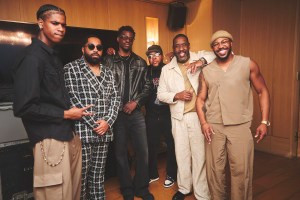
Trending on Billboard
Los Angeles’ live music club scene is amping up. And one of the energizers behind that push is Adam Blackstone, in his newly created role as creative director for the recently rebranded venue Live at The Sun Rose.
Explore
See latest videos, charts and news
Case in point: Earlier this month (Nov. 11), a long line of exuberant fans stretched down the block from the club’s entrance on Hollywood’s famed Sunset Strip. They were waiting to witness the Blackstone-led 30th anniversary salute to the star- and hit-filled 1995 film soundtrack Waiting to Exhale. Billed as a “special legacy experience,” the family reunion-vibed evening sparked lively singalongs — plus shoutouts and standing ovations — to songs such as Faith Evans’ “Kissing You,” Whitney Houston’s “Exhale (Shoop Shoop)”/”Why Does It Hurt So Bad,” Brandy’s “Sittin’ Up in My Room,” Mary J. Blige’s “Not Gon’ Cry” and Toni Braxton’s “Let It Flow.”
But it was done with a twist. Blackstone’s surprise guests for the affair was a cast of male singers who lent their own vocal insights to the soundtrack’s themes of love, hurt and friendship. Among the emerging and established artists on deck were TA Thomas, JayDon, Dixson and Darrel Walls. Also spotted in the audience: Waiting to Exhale star Lela Rochon, actor/producer Lena Waithe and Grammy-winning artist-musician Robert Glasper.
JayDon, Dixson, Lekhan, Eric Dawkins, Adam Blackstone and Darrel Walls at The Sun Rose West Hollywood, November 11, 2025.
David Coy II
The Waiting tribute is just one example of the kind of events Blackstone has in mind for Live at The Sun Rose. Nestled within The Sun Rose West Hollywood (formerly the Pendry hotel), the revamped 100-seat intimate space hosted a for-your-consideration chat in October between Blackstone and Teyana Taylor, who earlier this month received her first Grammy nomination. Recent and upcoming shows at the venue, which relaunched Aug. 1, include David Bowie’s Piano Man: Mike Garson featuring Judith Hill and Luke Spiller Presents — The Songs I Wrote for You (Dec. 5, 12-13).
Emmy winner Blackstone (Super Bowl LVI halftime show) won his first Grammy this year for best musical theater album (Hell’s Kitchen). The bassist, producer and musical director’s list of credits also includes Rihanna, Justin Timberlake, Alicia Keys, Maroon 5, Jay-Z and Eminem. Now he’s opening the door to a new era at the Sun Rose — and the Los Angeles club scene, which also welcomed Blue Note’s L.A. offshoot to town in August with Glasper as its partner/creative ambassador.
“It’s incredible to see and feel what’s going on in the city; there’s a lot happening now,” says Blackstone. “So I’m not taking this new role lightly. We’re going to push this new synergy of creativity forward at the Sun Rose.”
Below, Blackstone explains more about the vision behind the venue, and what inspired the unconventional Waiting to Exhale anniversary celebration.
How did this gig come about?
When my first album [2022’s Legacy] came out, I had been looking for a newish spot to set up shop. A friend of mine introduced me to a couple of people who told me about this brand new spot built over the House of Blues. I had so much nostalgia for that venue because one of the first albums I ever played on was with Jill Scott performing live at the House of Blues. So I went to see the room. It was incredible.
I feel that what we did that first night I played [promoting the new album] at Sun Rose in early 2023 set the precedent for what L.A. has become now jam session-wise. I really wanted to bring in some East Coast and Philadelphia flair: you invite people up onstage, it’s very impromptu. I think one of the things that people love about what happens at the Sun Rose, whether it’s me or not, is that it feels like a family safe space for people to mess up, to improv. That’s what jazz, blues and R&B are all about: to be in the moment, to be vulnerable, to tell stories.
I was very excited to be one of the first cats to make Sun Rose my home to do that type of music. So in making the transition from the Pendry, this job came about. I’m thankful to be a part of it. And we’re only going to get bigger and better as far as our reach.
Adam Blackmon with Lena Waithe and Lela Rochon at The Sun Rose West Hollywood, November 11, 2025.
David Coy II
What is your vision for achieving that mission?
My mission for Live at Sun Rose is to be a music venue that accepts all creative spaces, doing thing that other L.A. music venues can’t do. For example, we have sat down and talked about what 2026 looks like for Grammy Week, but also for NBA All Star Week, which might not just be music stuff but also installations. It could be glam things that are centered around music. All of these things our venue is able to do.
So the goal is to be anything live entertainment-oriented that allows people to have a safe space to come in and create whether that’s music, art, visual art, a podcast space [R&B Money taped a show there] or a glam space for hair, nails, makeup … there’s something to be said about the ambience and location that we provide alongside the history that’s already associated with Sun Rose.
Which prompted your staging a show celebrating the 30th anniversary of Waiting to Exhale?
The week we staged the show coincided with the Nov. 14 release date of the 1995 soundtrack. I had been talking to Babyface about the soundtrack, which produced several major hits and made such an impact on our culture. I asked him how he was able to write in the perspective of these four women. And Forest Whitaker directed the film.
So I got this genius idea that I hoped would translate. Because nobody speaks about such hurt from a man’s perspective, I wanted to surprise the audience by having all males sing the soundtrack’s songs. We’ve experienced and gone through some ish too. We hurt as well. And I felt this was the perfect time to do something like this in the intimate, safe space of the Sun Rose.
As creative director, how hands-on are you in organizing and slating shows at Sun Rose?
Ascreative director, I’m in it every day. We have calls, text threads and ideas that we present to one another. And artists are bringing me ideas. One of the things that we’re talking about now is developing immersive experiences for both the music venue and the hotel as well. Where people can stay over multiple days like during Grammy Week, NBA All Star Week or something like that and immerse themselves in the music and the culture without even having to leave the facility. That’s something that we can provide that another venue can’t.
Also, I’ll be doing probably five-six special concerts myself a year, or possibly more. But I’m there every day as creative director, helping to make decisions. Knowing the House of Blues was on this site, I feel a responsibility to uphold that great music tradition.
Trending on Billboard
Femme It Forward returned to The Beverly Hilton for its 4th Annual Give Her FlowHERS Awards Gala, where the celebration centered on women whose impact continues to shape music, community, and the future of entertainment.
Explore
See latest videos, charts and news
Hosted by Femme It Forward President & CEO Heather Lowery and executive produced by Miatta Johnson and Massah David of MVD, Inc., the evening brought together an electric group of artists, executives, athletes, and mentors for a night anchored in gratitude, sisterhood, and the power of uplifting women.
The evening also marked a standout moment for Billboard as its Executive Director of R&B/Hip-Hop, Gail Mitchell, was honored for her decades of shaping the genre’s narrative and opening doors for the next generation of women across the media industry. Her recognition underscored the gala’s emphasis on lineage, mentorship, and the women who have spent their careers amplifying others.
Gail Mitchell and Camren Linson onstage at the Give Her FlowHERS Gala 2025 held at The Beverly Hilton on November 21, 2025 in Los Angeles, California.
JC Olivera/Variety via Getty Images
The night opened under warm lights and lush florals, and included performances from Jordan Ward, Goapele, and FLO. This year’s honorees included Ciara, Jhené Aiko, Mariah The Scientist, Kehlani, Olandria Carthen, Normani, and Ravyn Lenae as they were celebrated alongside industry architects whose work has redefined possibility for women across entertainment.
The Next Gem Femme mentorship program, Femme It Forward’s flagship initiative, was also spotlighted for its pivotal role in providing access and accelerating career trajectories for women of color entering the field. Across the ballroom, mothers presented daughters, friends honored friends, and industry peers highlighted one another’s evolution, creating a night rooted in community and mutual admiration.
Teyana Taylor opened the evening by presenting her mother, Nikki Taylor, with The Queens Raising Queens Award. With barely a dry eye in sight, she thanked her for the blueprint she set, telling her, “I am the mother I am today because you are the mother you chose to be.”
Model Salem Mitchell presented longtime friend Ravyn Lenae with The Fem Z Award, spotlighting Gen Z artists who are setting the tone for the next generation.
Billboard’s Executive Director of R&B/Hip-Hop, Gail Mitchell, received the Mentor Excellence Award, honoring her 26-year legacy of elevating artists, nurturing talent, and advocating for inclusive storytelling across music media. Reflecting on her decades of mentorship, Mitchell told the room, “The main goal I’ve sought to accomplish throughout my career is paying my fortune forward: to hold the door open for others to walk through and fulfill their own dreams.”
Mitchell also offered a heartfelt nod to her colleagues, adding, “Thank you to my R&B/hip-hop family at Billboard, who are part of the next generation carrying the torch forward.”
Mariah The Scientist was recognized with The Bloom Award, presented by her sister Morgan Buckles, celebrating her artistic endeavors, where her momentum, vision, and evolution exemplify creative growth.
Jhené Aiko, whose catalog has contributed to shaping the fabric of contemporary R&B for more than a decade, received The Glow Getter Award from her mother, daughter, and sisters in a deeply vulnerable yet gratifying speech where she thanked her family for carrying her through a challenging year. “This year, they pulled me out of some really dark places,” she said. “They sat by my side when I couldn’t get out of bed.”
Olandria Carthen, honored with The Self-Love Award, emerged as one of the night’s breakthrough voices. With a growing fan base drawn to not only her beauty but her pure honesty, she used her moment to speak directly to women still learning to trust their own worth. “I dedicate this award to any woman who has ever questioned their worth.”
Normani took the stage to accept The Femme It Forward Award from Ryan Destiny, where she spoke spirit behind her work and the role of community in sustaining women in the industry.
“The Femme It Forward award fills me with immense gratitude because it speaks to humanity and who we are as people beyond anything else,” she said. “Philanthropy is never the work of one individual—it’s a shared effort built by communities, mentors, friends, and everyone who believes compassion is a force capable of real change.”
Kehlani’s acceptance of The Alchemist Award, presented by fellow Bay Area artist Goapele, unfolded as one of the night’s most vulnerable speeches. Coming off recent Grammy recognition and a years-long journey of evolution, she reflected on the often unseen parts of transformation.
“I firstly must thank God, the ultimate alchemist, the transformer of all things,” she said. “Alchemy isn’t always shiny; sometimes it happens in the dark when no one is watching, when you’re trying to remember who you are and what you’re here to do.” She thanked her community for allowing her to grow openly, saying, “Thank you for giving me the space to grow, to shift, to unlearn, to heal, and to come back to myself again and again.”
In her first major appearance after stepping down as Chairwoman of Epic Records, Sylvia Rhone accepted the inaugural Sylvia Rhone Legacy Award—a distinction honoring her groundbreaking, decades-long impact in the music industry.
She addressed the women in the room with clarity and conviction: “Now I am passing the baton to you all. Like the Olympic relay races, passing the baton transfers momentum. Successful exchanges make up time you thought you might have lost. Success relies on teamwork, timing, and communication. It’s your time, so go forth and prosper even more.”
The evening closed with a powerful message from Heather Lowery, who told the room: “To every woman watching, listening, or quietly dreaming, remember your story is sacred; your roots are strong; and your flower will bloom in its own divine timing.”
Trending on Billboard
Donald Glover told fans at Tyler, the Creator’s Camp Flog Gnaw festival on Saturday night (Nov. 22) that he suffered a stroke last year while touring under his Childish Gambino moniker — an episode that ultimately led to the cancellation of his world tour.
Explore
See latest videos, charts and news
During his set at Dodger Stadium in Los Angeles, Glover recounted the medical emergency that struck mid-tour in 2024. He explained that the symptoms began after a show in New Orleans, where he experienced a sudden, intense head pain and blurred vision. Despite performing through the discomfort, he later sought medical attention in Houston, where doctors informed him he had experienced a stroke.
“I had a really bad pain in my head in Louisiana and I did the show anyway,” he told the crowd. “I couldn’t really see well, so when we went to Houston, I went to the hospital and the doctor was like, ‘You had a stroke.’”
He added that his first reaction was thinking he had “let everybody down,” before joking that he felt like he was “copying Jamie Foxx” — whose own stroke in 2023 made global headlines.
Glover said the stroke was only part of what he faced medically. He also revealed he had broken his foot around the same time, and that doctors discovered a hole in his heart that required two surgeries.
“They say everybody has two lives, and the second life starts when you realize you have one,” he told fans. “You’ve got one life, and the life I’ve lived with you guys has been such a blessing.”
The medical complications forced Glover to cancel the remainder of his planned dates, including U.S., U.K., European and Australian shows. At the time, he publicly referred to the incident only as an “ailment,” noting that his recovery was taking longer than expected.
Glover released Bando Stone & the New World in 2024 — which he billed as the final Childish Gambino album — and had planned the now-canceled tour as a farewell era for the stage name. The five-time Grammy winner has since shifted focus back to film and television projects under his own name.
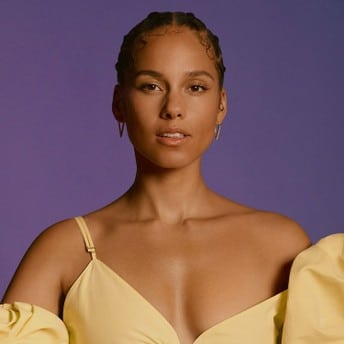
Trending on Billboard
Alicia Keys had a busy Friday (Nov. 21). Not only did the 17-time Grammy winner release a new holiday song and guest on a single from an Italian vocal legend, but she made a special appearance alongside the cast of her semi-autobiographical Broadway musical, Hell’s Kitchen, at the Shubert Theatre. Keys was in the house to deliver a mini-set as part of an “encore sessions” performance, but she was also there salute to the Broadway debut of Grammy-winning gospel singer Yolanda Adams, who just joined the cast as Miss Liza Jane.
Explore
See latest videos, charts and news
After belting the “Empire State of Mind” finale with the cast, Keys and Adams took the stage together. “First of all, I’m grateful,” said Adams, hugging Keys. “All that dancing made me feel younger, but my feet say no. I have to thank Alicia for saying, ‘Hey, what do you think about…?’ And I’d already thought about it, and I tried it, and I love it.” When Adams left the stage, Keys was in her element, blissfully relaxed at an upright piano while crooning her cover of Prince’s “How Come U Don’t Call Me Anymore?”, duetting with cast member Durrell “Tank” Babbs on a gorgeous cover of Bonnie Raitt’s “I Can’t Make You Love Me” and singing “Underdog” before sending the ecstatic audience out into the streets of Manhattan (incidentally, not far from Hell’s Kitchen).
Just hours before dazzling Broadway, Keys spoke to Billboard about “Hell’s Kitchen’s a Merry Little Christmas,” which hit DSPs on Friday. She says the idea of a holiday song for her Broadway musical Hell’s Kitchen was broached a year ago. “For different reasons it didn’t come together,” she tells Billboard. “This year we knew we wanted to do it, so we put it together now.”
“Hell’s Kitchen’s a Merry Little Christmas” mashes up the standard “Have Yourself a Merry Little Christmas” with the musical’s opening number, Keys’ “The Gospel.” The recording features Adams along with principal performers including Amanda Reid, Phillip Johnson Richardson and Jessica Vosk.
“I love it so much,” Keys continues. “It’s such a beautiful version. Of course, the holidays are such a beautiful time to celebrate that warm, festive feeling. We wanted to bring some Hell’s Kitchen energy.”
The recording was produced by Adam Blackstone, Keys’ longtime collaborator who also serves as music supervisor and co-orchestrator for the musical. “Our process of bringing the music to life for Hell’s Kitchen has been so thrilling and exciting,” Keys says. “We had no idea that someone as phenomenal as Yolanda Adams would be joining the cast. The life of Hell’s Kitchen has just been such an incredible experience.”
With a book by Kristoffer Diaz, Hell’s Kitchen premiered at the Public Theater in late 2023, moving to the Shubert Theatre in March 2024. It was nominated for 13 Tonys, with Kecia Lewis, who played Miss Liza Jane, wining for best featured actress in a musical and Maleah Joi Moon, as Ali, taking home best actress in a musical at the 2024 Tony Awards. The original Broadway cast recording, featuring the three brand-new songs Keys penned for the musical, came out in 2024 and hit No. 1 on Billboard‘s Cast Albums chart.
The first North American tour, meanwhile, kicked off during October in Cleveland, with 30 cities on the schedule for its first year.
“That’s such a huge accomplishment,” Keys says. “And I’m so excited the country will get to experience it — even if you can’t come to New York — in a city near you. And this cast is unreal. I just can’t believe how good they are.”
The holiday song isn’t Keys’ only new music to drop on Friday. It coincides with the release of her feature on “L’aurora,” a new single by Italian vocalist Eros Ramazzotti. “It’s my first time singing in Italian,” she says. “It’s such a beautiful process to continue to learn and try things that are new and different, so I’m really excited about that.” Keys is also working on new material as she works toward a follow-up to her last studio album, 2021’s Keys, and 2022’s holiday effort Santa Baby.
“I’m writing right now, creating new music,” she says. “It is very, very special. I just feel like I’m getting better and better, so that’s all happening. There’s a lot of phenomenal things bubbling, but I just take my time — just like Hell’s Kitchen, just take my time putting it all together. It’s just a beautiful time of no limits. That’s how I look at everything.”
Trending on Billboard
Rolling Loud has unveiled the full lineup for its 2026 Australia edition, confirming a heavyweight bill of U.S. rap acts alongside some of the country’s most prominent homegrown names.
Explore
See latest videos, charts and news
Rolling Loud Australia is set to take place across two cities in March: Sydney’s Centennial Park on March 7, and Melbourne’s Flemington Racecourse on March 8. The twin one-day events mark Rolling Loud’s first shows in Australia since 2019, and the first time the global hip-hop festival brand has expanded to a two-city format in the country.
Gunna will headline the two-city run, following Rolling Loud’s earlier confirmation that the rapper would anchor the event. Ken Carson joins him at top billing, extending the Opium-affiliated artist’s growing presence across the festival’s global footprint. Sexyy Red — previously announced — leads the second tier of performers.
The 2026 bill includes several major U.S. rap acts across its main stages. Sexyy Red, Tyga, Swae Lee, Lil Tjay, Ski Mask the Slump God, NLE Choppa, Quavo, Ian and rising rapper Osamason are among the international performers scheduled across the weekend. The lineup spans established touring names, TikTok-driven breakout acts and core Rolling Loud regulars who have been fixtures across the festival’s global editions.
In addition to the international programming, Rolling Loud Australia will feature a dedicated stage focusing on local artists from Australia and New Zealand. Acts announced for the regional platform include Hooligan Hefs, Youngn Lipz, Amarni, Day1, Lil Golo & Cult Shotta, 4ourttune and Jonny Chopps. While each city will include select local-only performers, the core lineup remains consistent across both dates.
Rolling Loud first debuted in Australia in 2019 with a one-day event at Sydney Olympic Park headlined by Future, Playboi Carti and Rae Sremmurd. That edition sold out quickly and became a key marker of the festival’s global expansion cycle. Its return in 2026 marks the brand’s first Australian event in seven years and the first time Rolling Loud has staged back-to-back shows in two Australian cities.
The announcement follows a period of continued international growth for the Miami-born festival, which recently added new editions across Europe, Asia and India. Rolling Loud India will take place later this month with a lineup headlined by Central Cee, Wiz Khalifa, Don Toliver and Karan Aujla.
Rolling Loud Australia 2026 will run in partnership with Primuse Entertainment as the local production partner. Further scheduling and site details are expected in the lead-up to the March events.
Trending on Billboard Ice-T was having a little too much fun messing around with AI and had a laugh at putting all of “the Ices” of hip-hop together in one photo. The 67-year-old posted an AI-generated picture featuring himself in a Yankees fitted cap next to Vanilla Ice, Ice Cube and Ice Spice hitting an […]
Trending on Billboard
Ja Rule was involved in a heated moment in New York City on Thursday (Nov. 21).
The incident was first reported by blogger Tasha K, who claimed on X that the Queens rapper was allegedly jumped outside of New York City restaurant Sei Less. Ja Rule later debunked the report on social media and posted the following on X: “Tasha why you lying to these good ppl,” he wrote. “Yes some b–ch a– n–as tried to jump me, No it wasn’t at sei less and I’m chilling smoking a joint watching SVP wit not a scratch on me.”
Upon hearing Ja’s response, Tasha corrected herself on Instagram, admitting she had incorrectly reported that it was at the restaurant. “As I said @jarule Story Developing…. Bottom line, I heard you got your a$$ beat… ain’t nobody lie on you… this is why I thought it was Sei Less.. they ran down on you tho… Glad you ok!! #Receipts,” she posted.
Explore
See latest videos, charts and news
A spokesperson for Sei Less tells Billboard that no incident occurred at the restaurant on Thursday.
The screenshots in question claiming an incident occurred that Tasha shared on social media were between her and an unknown source who allegedly witnessed Ja Rule’s attack at the Brandy and Monica concert. Video footage surfaced allegedly showing Ja’s attack, but without the indication on the location. Later, Ja Rule posted a clip of himself laughing off rumors and wrote, “Believe half of what you see and none of what you read…we good over here.”
Sources tell Billboard that a scuffle occurred at the side stage between Ja Rule and a group of men, but was contained shortly after by security. Billboard has reached out to Ja Rule’s reps for comment.
Before this incident, Ja Rule and his arch nemesis 50 Cent continued to be front-page material, as they’ve exchanged numerous shots this year, further elongating their longtime feud. Ja was recently on Carmelo Anthony’s 7 PM in Brooklyn Podcast, where he dissected his feud with 50.
“I felt like I made the better records,” he said at the time. “I feel like my records aged better, still. So, that’s how I feel inside. I don’t know how everybody else feels.”
He added: “You don’t gotta love both, but you gotta respect both. You gotta appreciate both, and that’s just what it is. Even in rap competitions and battles and beefs and s–t like that, I have a very different take on it than everybody does. He has a take on it that was his take.”

 State Champ Radio
State Champ Radio 
